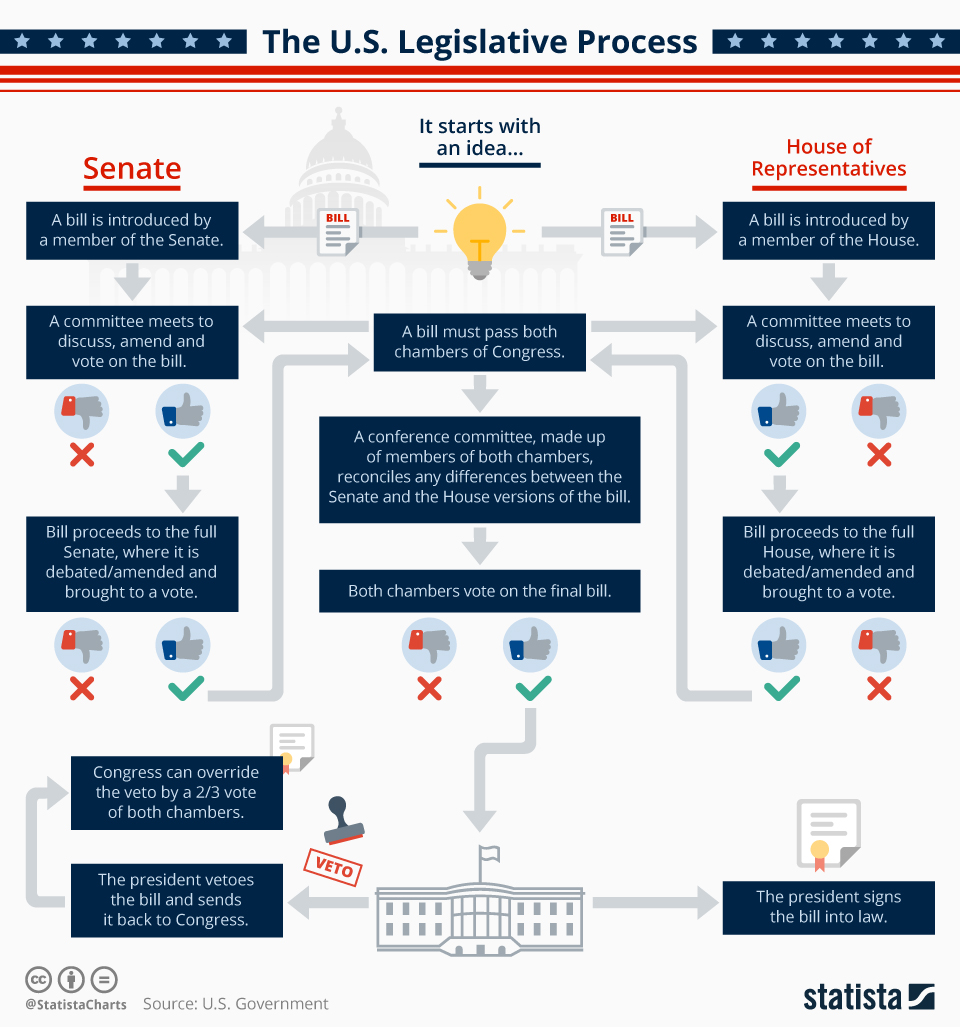The U.S. Legislative Process
Midterm Elections
While U.S. President Trump and his Republican party retained their Senate majority in the midterm elections held on Tuesday, they lost control of the second chamber of Congress, the House of Representatives. Both parties will likely try to sell the outcome of the highly-contested midterms as a success, but the key question is this: what effect will a split Congress have on President Trump’s chances of passing major legislation into law?
The answer is a large effect. The U.S. legislation process is designed in a way that requires both chambers of Congress to pass any suggested bill before it is presented to the president for final approval. Holding the majority in the House of Representatives will enable Democrats to block any bill they do not approve of. Passing major legislation in the coming two years will require a large degree of bipartisan cooperation and compromise – two things notably absent in a political climate that has been more divided than ever in recent years.
The answer is a large effect. The U.S. legislation process is designed in a way that requires both chambers of Congress to pass any suggested bill before it is presented to the president for final approval. Holding the majority in the House of Representatives will enable Democrats to block any bill they do not approve of. Passing major legislation in the coming two years will require a large degree of bipartisan cooperation and compromise – two things notably absent in a political climate that has been more divided than ever in recent years.





















